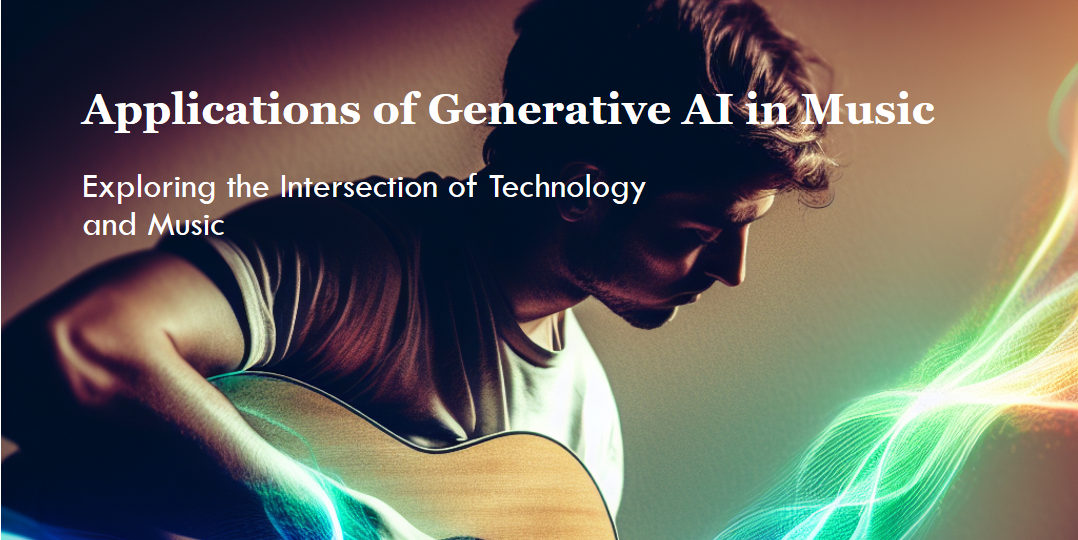Applications of Generative AI in Music
January 26, 2024 | by aioptimized.click

Introduction
Generative Artificial Intelligence (AI) has revolutionized various industries, and the music industry is no exception. With advancements in machine learning algorithms, AI is now capable of composing, producing, and enhancing music in ways that were previously unimaginable. In this article, we will explore the various applications of generative AI in music.
Composition and Songwriting
Generative AI algorithms can analyze vast amounts of musical data, including melodies, harmonies, and rhythms, to generate original compositions. These algorithms can learn from existing music and then create new pieces that mimic the style of specific genres or artists. This technology allows musicians to explore new creative territories and find inspiration for their own compositions.
Music Production and Arrangement
Generative AI can assist in the production and arrangement of music by providing automated suggestions for chord progressions, instrument choices, and arrangement ideas. By analyzing patterns in existing music, AI algorithms can generate unique and innovative ideas that can enhance the overall production quality and creative process.
Real-time Performance
Generative AI can also be used in real-time performance settings. Musicians can use AI algorithms to generate accompaniments, improvisations, or even entire compositions on the fly. This technology allows for interactive and dynamic performances, where the AI responds to the musician’s input and adapts in real-time.

Personalized Music Recommendations
AI algorithms can analyze a listener’s preferences, musical taste, and listening history to provide personalized music recommendations. By understanding the listener’s preferences, generative AI can suggest songs, artists, and playlists that align with their individual taste, leading to a more engaging and tailored music listening experience.
Conclusion
Generative AI has opened up a world of possibilities in the music industry. From composition and production to real-time performance and personalized recommendations, AI algorithms are transforming the way music is created, consumed, and enjoyed. As technology continues to advance, we can expect even more exciting applications of generative AI in music.

